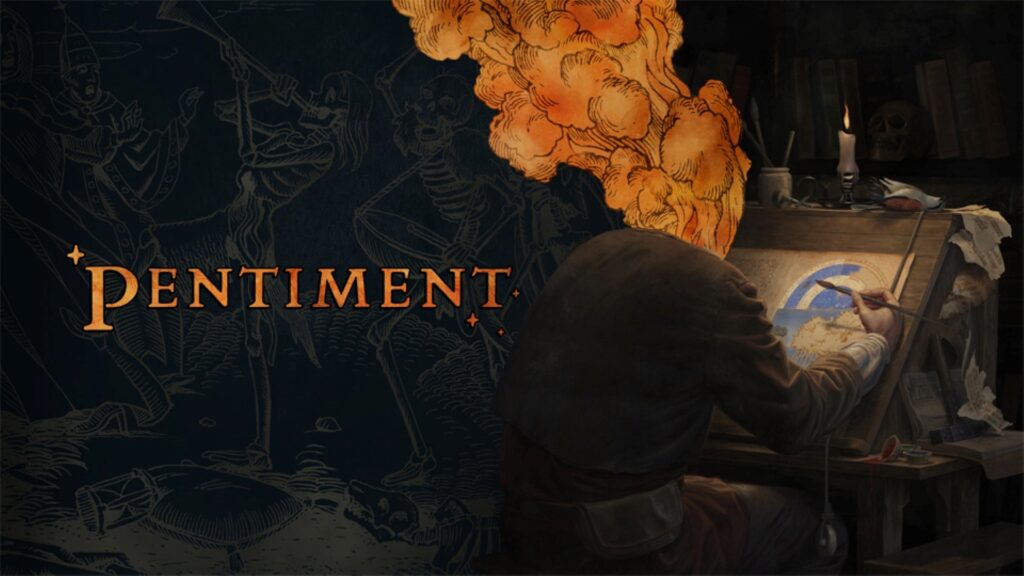‘Pentiment’ comes from the Italian term pentimento, which refers to an underlying image found in a painting, one that has become visible when the most recent layer is removed, providing evidence of revision by the artist. The concept of revising, altering, or changing the details of historical story elements is a central theme across Pentiment’s 15-hour story. Pentiment presents players with information, but it is ultimately up to the player to decide how they will utilise that information to make choices across the story. There are no obvious black or white, good or bad, right or wrong answers to make, which ultimately helps emphasise the profound nature of Pentiment’s title.

Pentiment is a heavy text-based historical fiction adventure set in the small European town of Tassing. Initially players begin their journey in 1518, but will revisit Tassing at different times, as the story takes place over a 25-year time period. Pentiment deals with heavy themes such as religion, politics, and other issues historically relevant to this era.
Before I dive deeper into Pentiment, I must acknowledge that this experience will not be for everyone. There is a tremendous amount of text to read, which helps add highly detailed depth to the town of Tassing and its inhabitants, but because of this, there can be extremely long scenes where players passively indulge in large exposition dumps. This will make or break the experience for a lot of players, which is something people should consider before playing. If the idea of predominantly reading for 15 hours does not appeal to you, then Pentiment isn’t for you. However, if a heavy text-based journey through a detailed world with extensive backstory and characters, then Pentiment is an adventure you should consider.
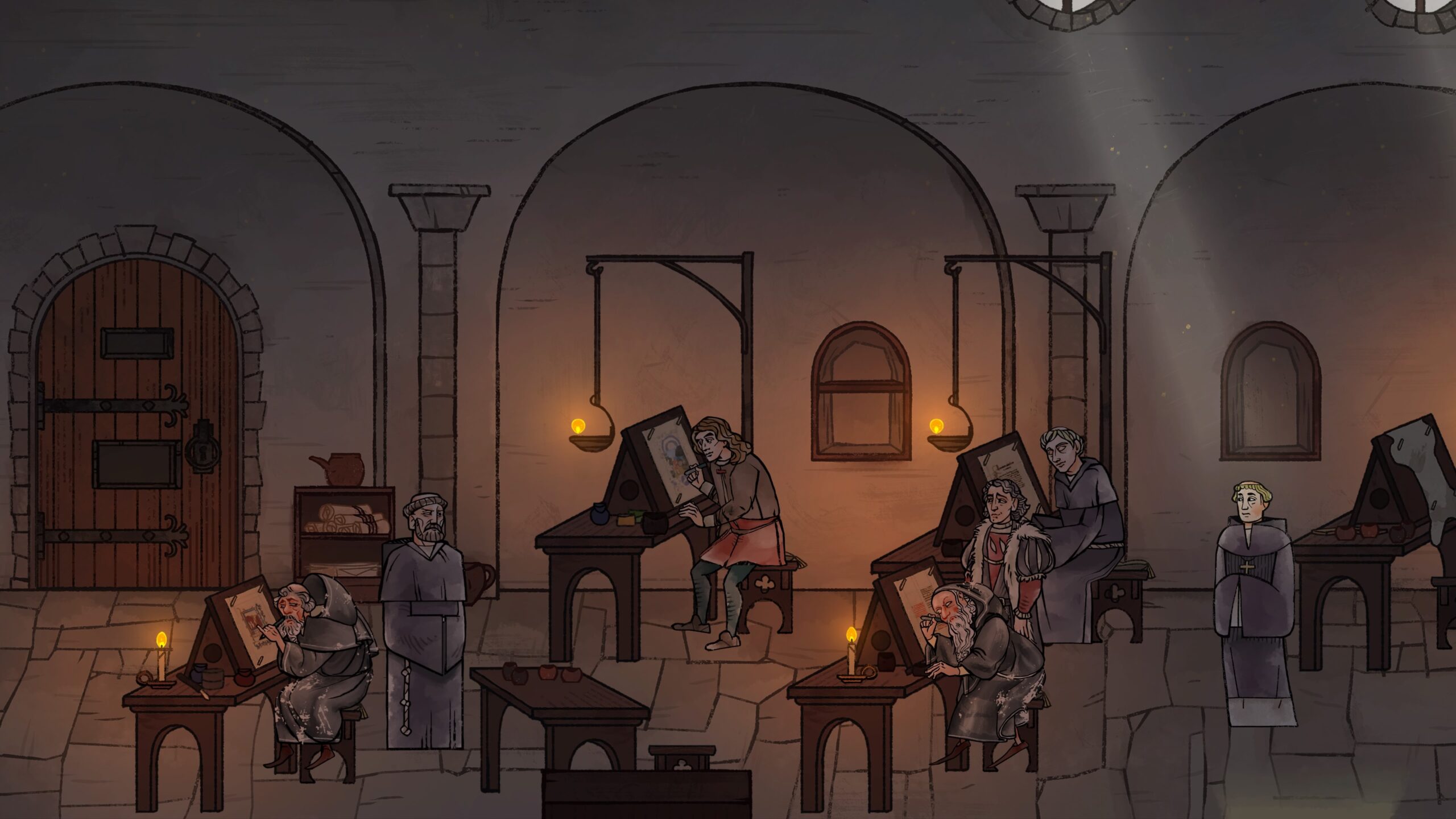
RELATED: Brothers: A Tale of Two Sons Remake Review — FATHER!
Pentiment follows the story of Andreas Maler, an artist currently working on their ‘masterpiece’ at the Kiersau Abbey. Pentiment also features light RPG elements, allowing players to choose the personality traits and backstory of Andreas, similar to the backstory character choices in Mass Effect. This will provide players with additional dialogue options and choices, allowing Andreas to interact more positively with certain characters. For example, my version of Andreas was a master talker who had previously travelled abroad, allowing him to easily persuade others and also speak about his travels in conversations. Andreas is a great character, and due to the fact I could choose his dialogue responses, I found myself forming a personal bond with my version of Andreas. He is a confident individual, charismatic to his core, and also incredibly intelligent, which could also help him form bonds with other characters.

Pentiment features an incredibly slow opening Act, as the story tries to ease players into the town of Tassing, the religious terminology frequently used, and the dozens of characters in the town, each one with their own personality, goals and beliefs. Due to the amount of information initially thrown at the player, the slow opening makes sense to help comprehend every detail, but the first several hours of Pentiment are definitely the weakest. However, once a prominent character is murdered and Andreas finds himself tangled in the investigation, Pentiment transforms into a fantastic narrative with intrigue, shocking twists, and brilliant writing.
When investigating the murder, Andreas will have many leads he can follow, with each lead taking him down a different path on his quest to find the one responsible. It is also worth noting that Andreas does not have enough time to follow each lead, meaning he could miss vital details which will affect the outcome of his investigation. This adds a great sense of urgency and intensity to your search, as you never know when you will run out of time, or whether you wasted time chasing a dead end. Ultimately, Andreas must present his information and deliver his verdict, which is when the brilliance of Pentiment’s choice-based story elements are shown.
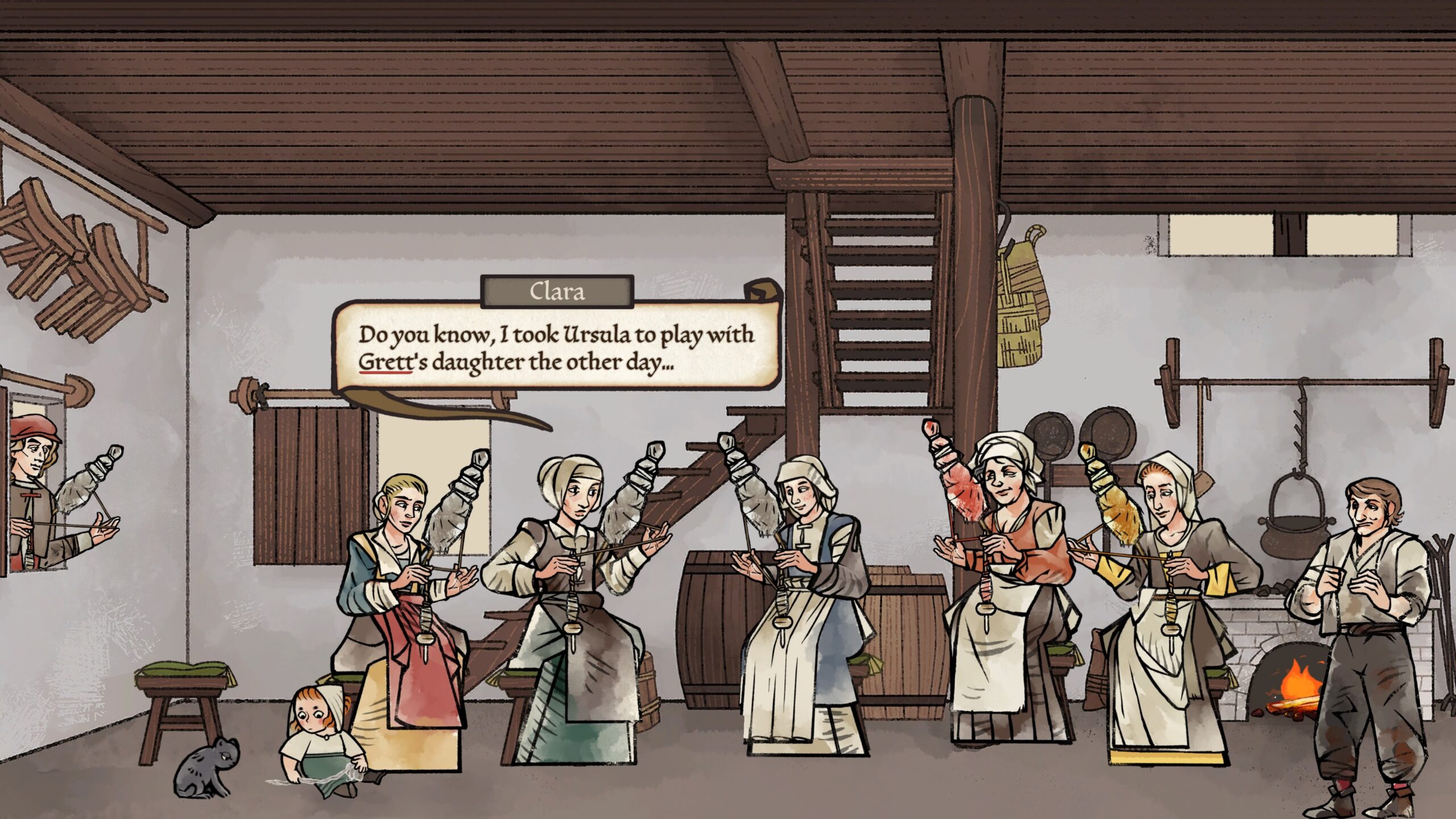
Pentiment never explains how players should handle the information they obtain. It does not explain to players which option is considered good or which decision could hinder Andreas and the town. This was an aspect of Pentiment I truly adored. For example, when searching for the culprit, you find out that the murdered individual has a despicable past, and there is an argument to be made that some of the main suspects would be justified in murdering them. So, what would you do? Do you accuse these individuals of murder, even though they may face extreme consequences? Or maybe you consider their actions justified, ignore the evidence and instead accuse someone else, someone who is inherently a bad person, but more than likely is innocent of the murder. These conundrums and consequences are easily some of my favourite features of Pentiment and help make the story truly thrilling.
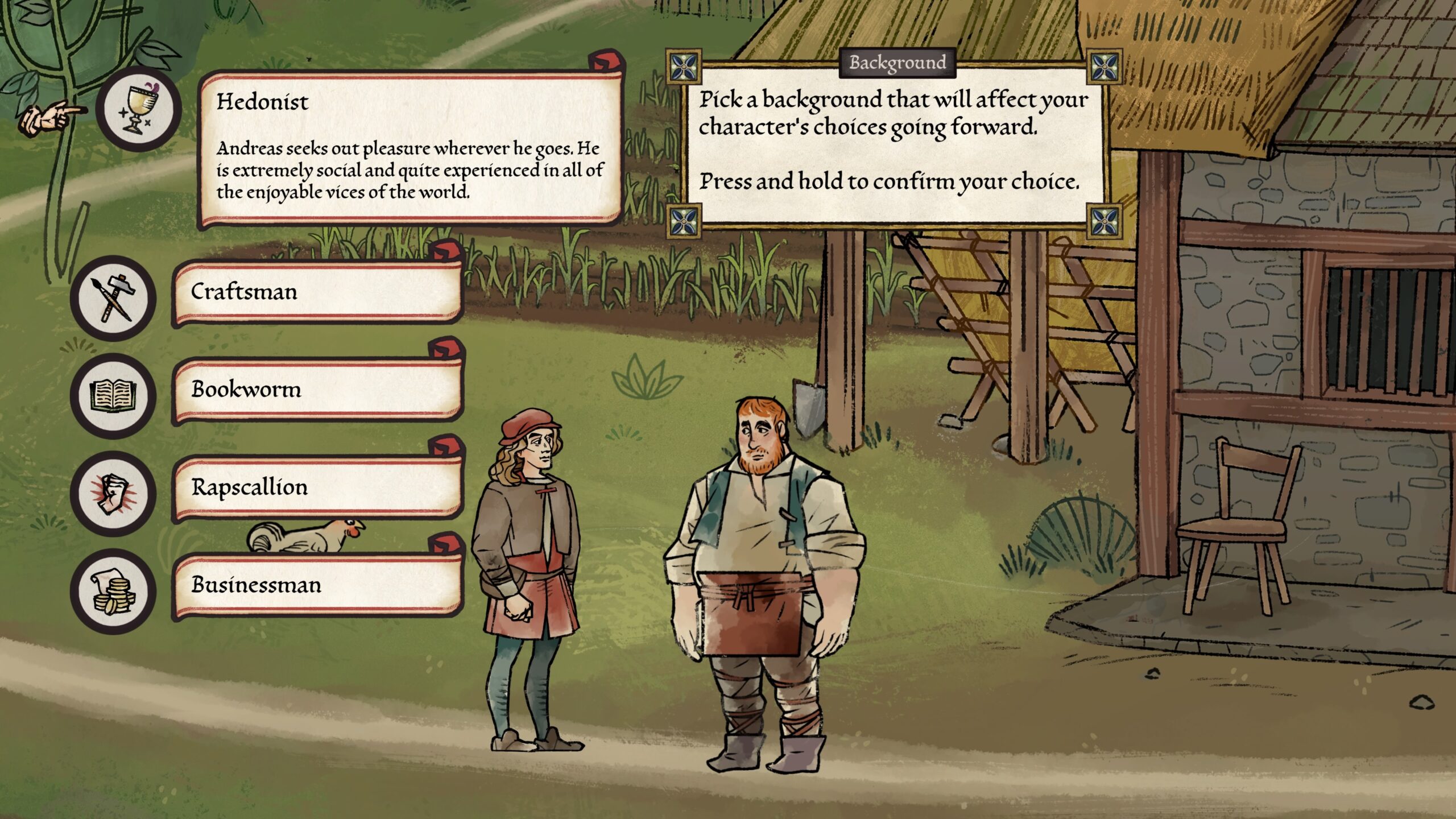
At certain times of the day Andreas will need to eat, and he can do this by visiting other families. During these family meals, Andreas will partake in conversation, and players will occasionally choose which food he will eat next. These meals are finished quickly, but I did enjoy these moments as they helped explore the personalities and beliefs of other characters.
As mentioned, Pentiment takes place across three Acts, with players visiting Tassing during three different time periods over 25 years. This is an interesting element, as it allowed me to return to the town to see how my choices affected the characters I cared about and the town itself, an aspect few games truly explore as time jumps seem to be very rarely utilised. However, the time period changes can also cause some confusion, as characters will leave Tassing, some will pass away, and new characters will arrive. I did find myself struggling to keep track of some of the less-featured characters, as there are a lot of names and faces to remember. However, this could be intentional as, over the course of Pentiment’s story, it became quite clear that while initially sold as a story about Andreas, this story is actually about the town of Tassing itself. This narrative interpretation is grounded in Act 2 (my favourite Act) and further emphasised in Act 3.

Pentiment’s story is open to interpretation, but throughout my 15-hour journey, I believe there is a deep focus on the theme of history and how we use historical events to move forward. Through loss, heartache, and even rage, the town of Tassing continues to thrive as generations are lost and new ones begin. Pentiment wants players to consider the mark they leave on Tassing, and that same thematic concept can be considered and applied to our own personal lives. Our time in Tassing and our time on this Earth may be short, but if we utilise our time well and help create a better world for those in the future, then we have ultimately done the best we can. These powerful themes help lift the grand narrative Pentiment delivers to fantastic heights, creating a memorable and unique adventure that players will cherish.
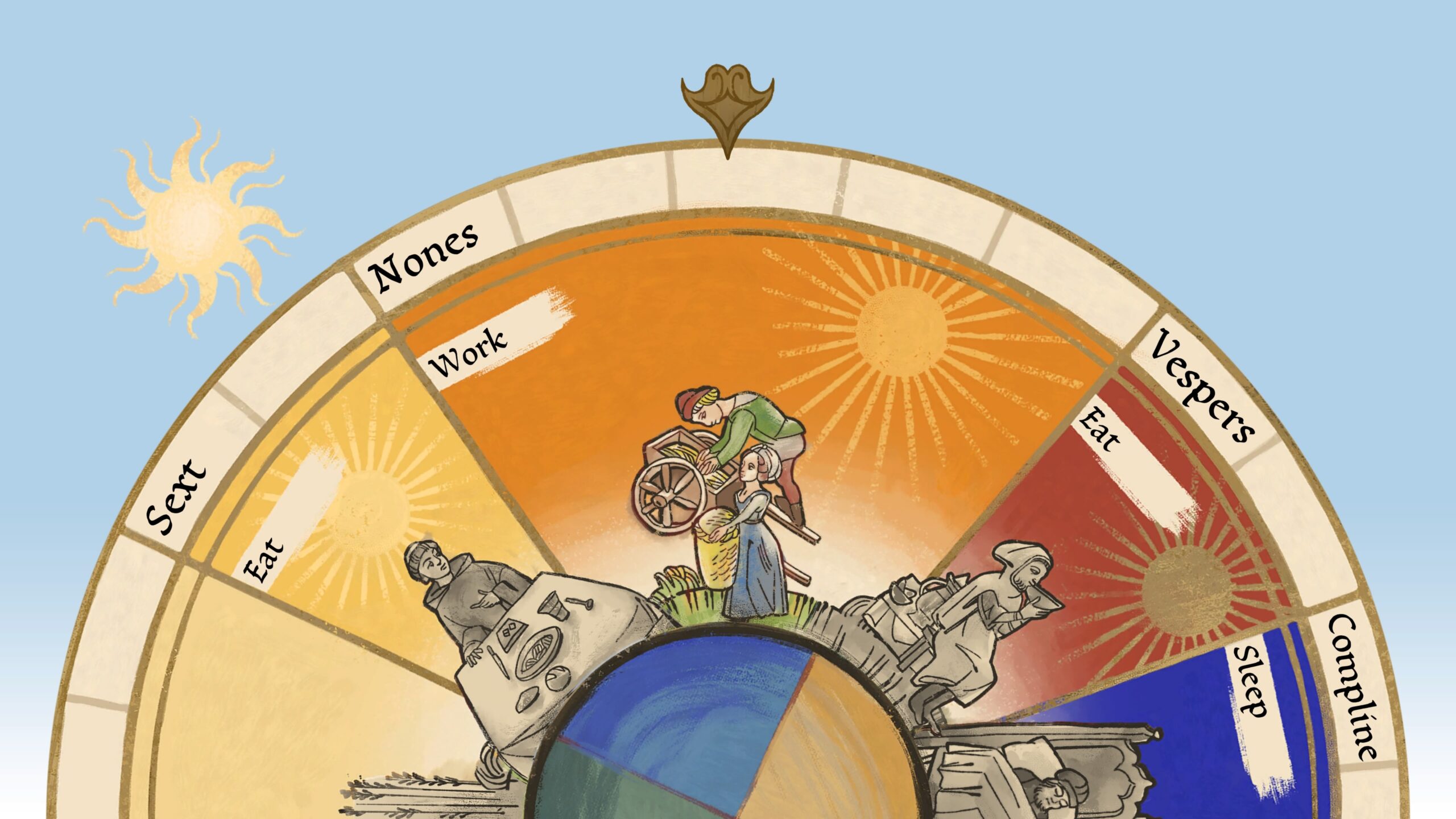
Aside from walking through Tassing to participate in conversations, Pentiment lacks many other gameplay features. Pentiment does feature the occasional mini-game, tasking players with chores, such as helping the blacksmith or making cookies for a Christmas feast. These mini-games have been included to try and break up the flow of reading large bodies of text, but as they are incredibly easy and usually take less than a minute to complete, they add very little to the experience. In the end, Pentiment heavily relies on its story and choice-based dialogue as its main gameplay hook and is lacking in other gameplay features, which, again, will make or break the adventure for many players.
Pentiment features some great ambient sounds, as farmyard animals and even the clanging of the blacksmith can be heard when you explore the town. There are even charming sounds that thematically fit the adventure, such as page-turning sounds when entering new areas or scribbling noises when characters are writing out their dialogue. But aside from those audio features, Pentiment lacks meat in its audio bones.
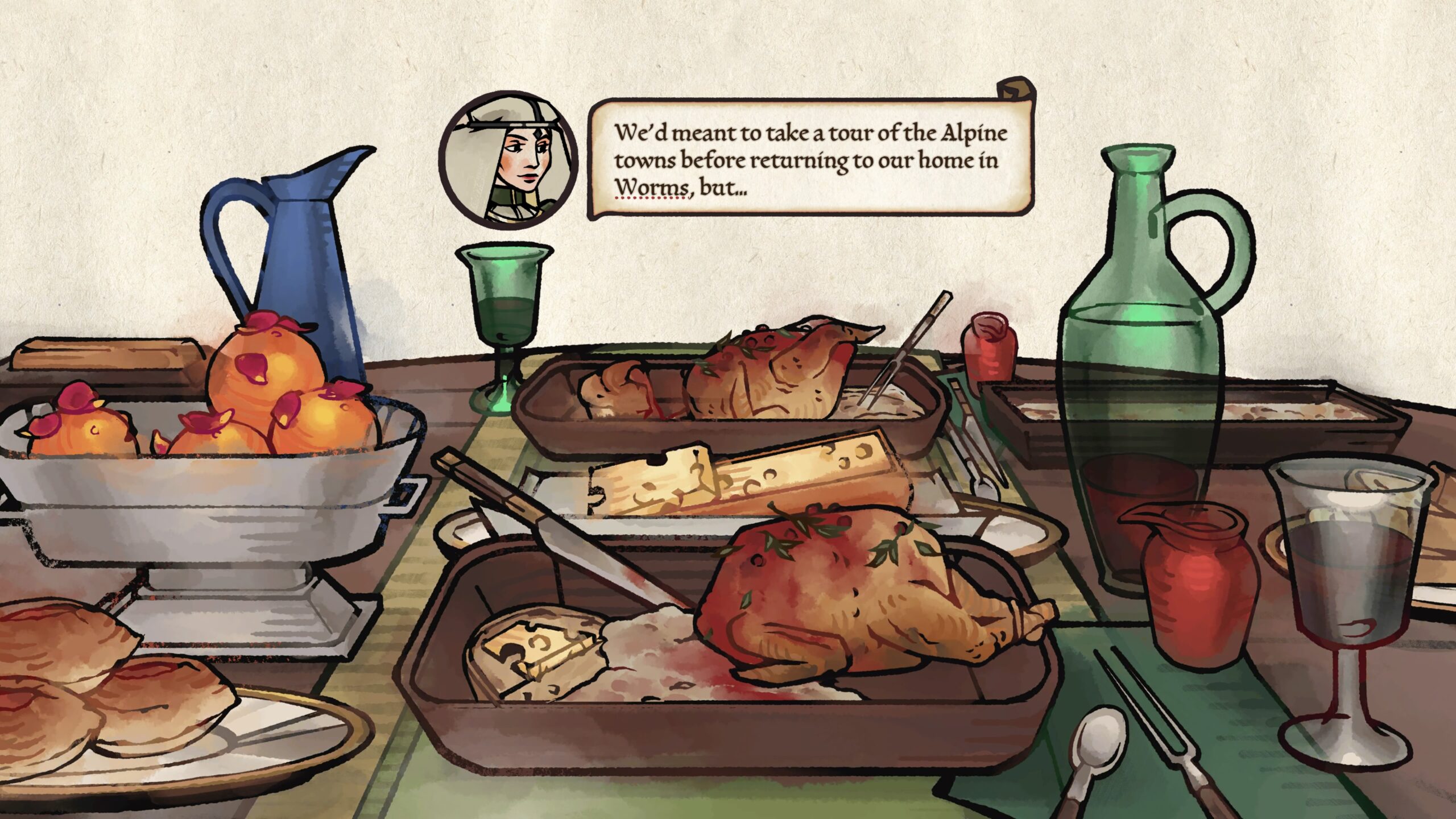
There is no voice acting in Pentiment, meaning players must read each piece of text-based dialogue to grasp the themes and plot of the story. Pentiment also lacks in the music department. When Pentiment does offer music to the player, it helps portray the medieval time period perfectly. However, there is simply not enough. During the majority of conversations and major plot moments, there is nothing but silence. This feels like a missed opportunity, as additional tracks would have helped improve the atmosphere of the adventure.
Reminiscent of The Banner Saga, Pentiment has a 2D hand-painted visual style, which makes the entire experience look similar to the paintings created around the era of the story. Pentiment looks visually stunning and, at times, breathtaking, as the visual style looks like a gorgeous painting come to life.
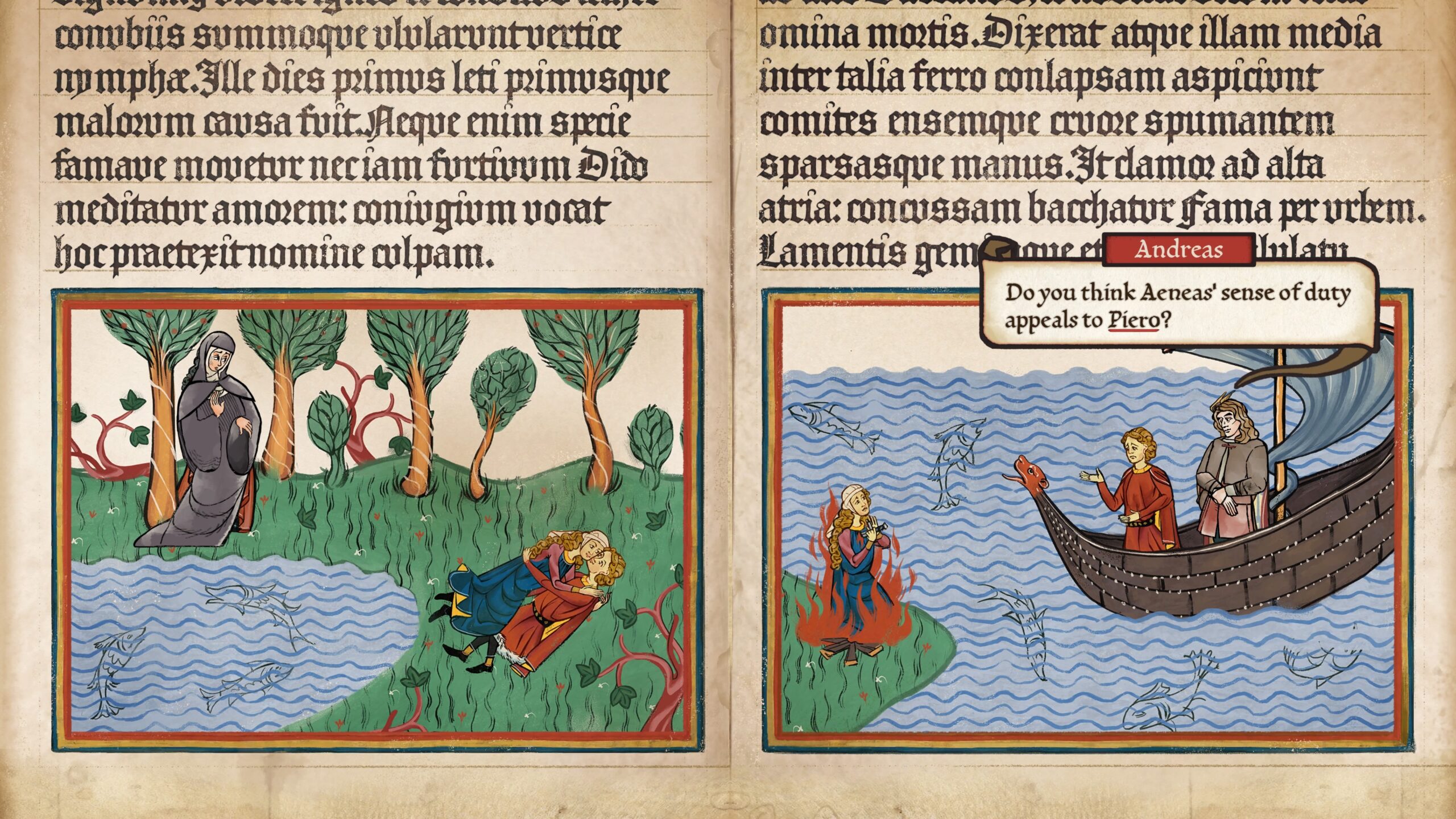
Another interesting design element relates to the font styles presented during conversations. Text will appear in real-time, with almost every character having their own unique font style; some characters will even misspell words and then correct the mistake. When the text first appears, it will be applied in fresh ink, and you will see the writing style bleed into the parchment as it dries. It’s a lovely detail but I did eventually find myself turning off the stylish font features. While thematically fitting and visually unique, some fonts were quite difficult to read, as they replicated handwriting styles of this era. Fortunately, this aspect can be switched off in the accessibility menu.
PENTIMENT REVIEW
Pentiment was developed by only 16 members of the Obsidian Entertainment team, which is truly mind-blowing, especially when considering the incredible amount of depth found within its world and cast of characters. Pentiment’s main selling point is its story, and, in this regard, it absolutely delivers. This is a fantastic story with brilliant twists, historically relevant themes, and great writing across the entire 15-hour journey. Pentiment is also very pleasing on the eyes, with a truly gorgeous hand-painted 2D style. However, Pentiment lacks in many other areas, with a lack of gameplay features and a mostly silent audio experience.
Pentiment is not for everyone, but those who are willing to invest in the town of Tassing and its inhabitants will find a memorable adventure.
PROS
-
Fantastic main story, with shocking twists and brilliant characters
-
Choices are morally grey, with good/bad options never outlined
-
Lovely visual style
CONS
-
If walking and talking isn’t for you, there isn’t much else to do
-
The quantity of music is lacking
